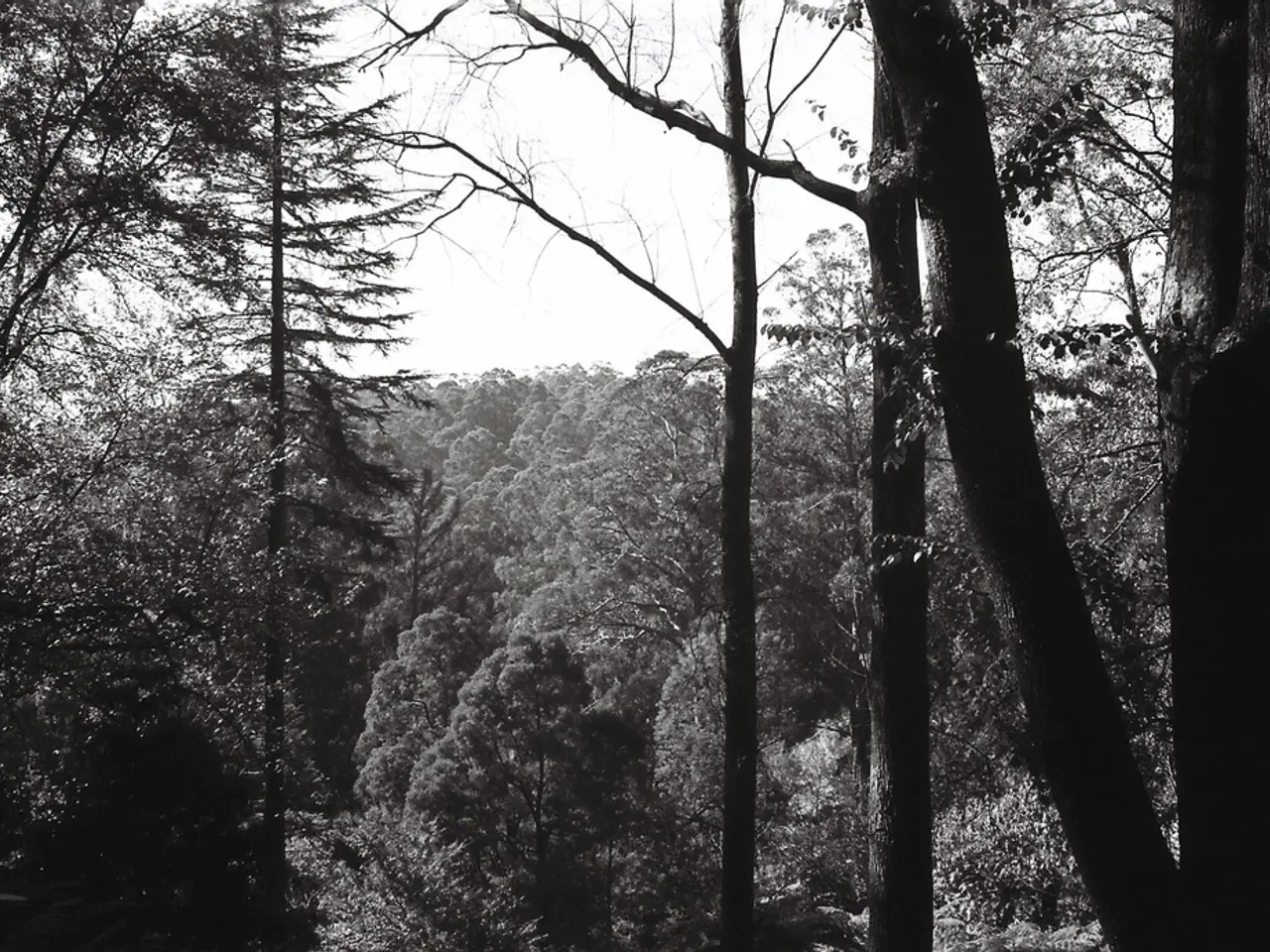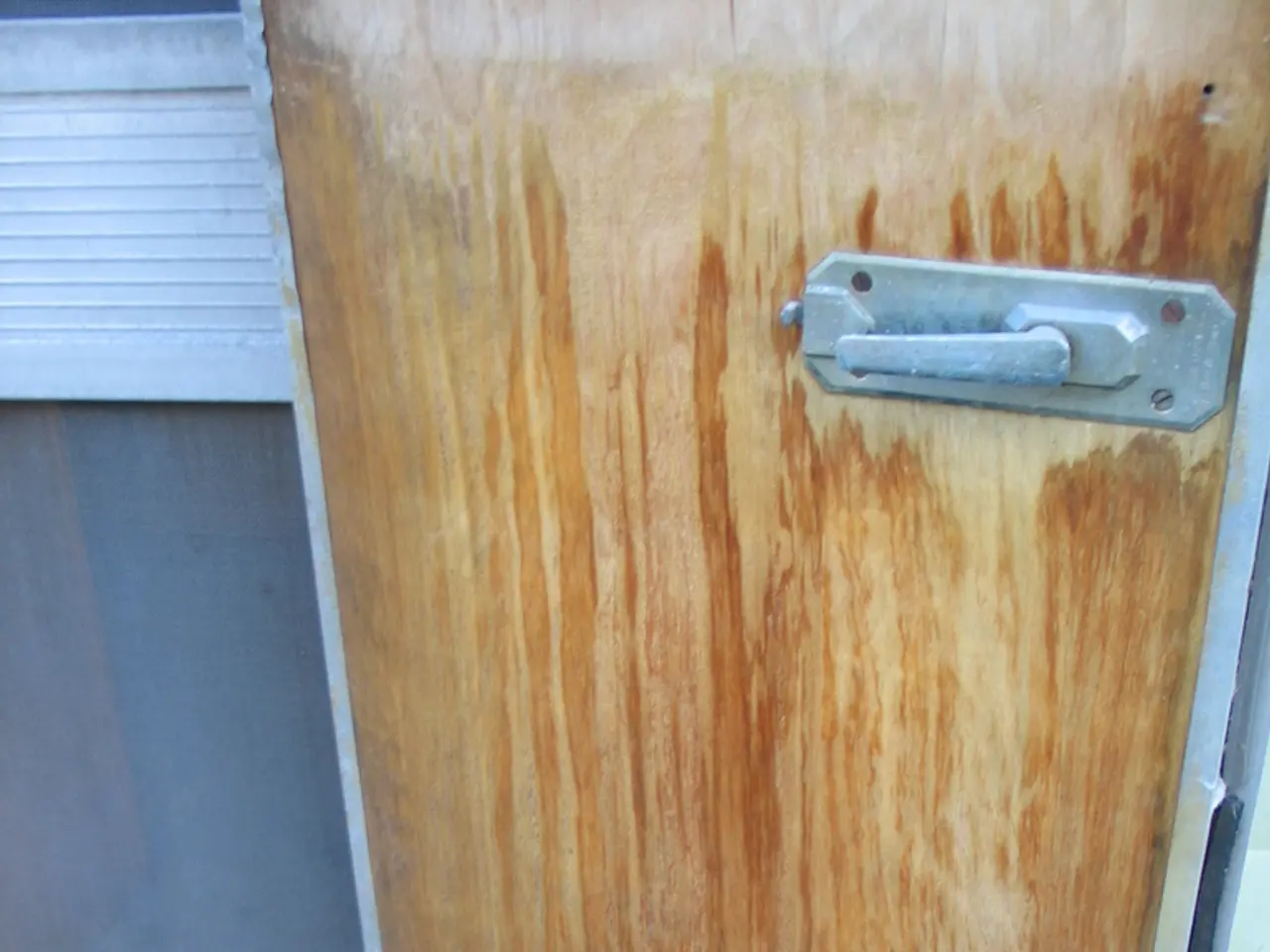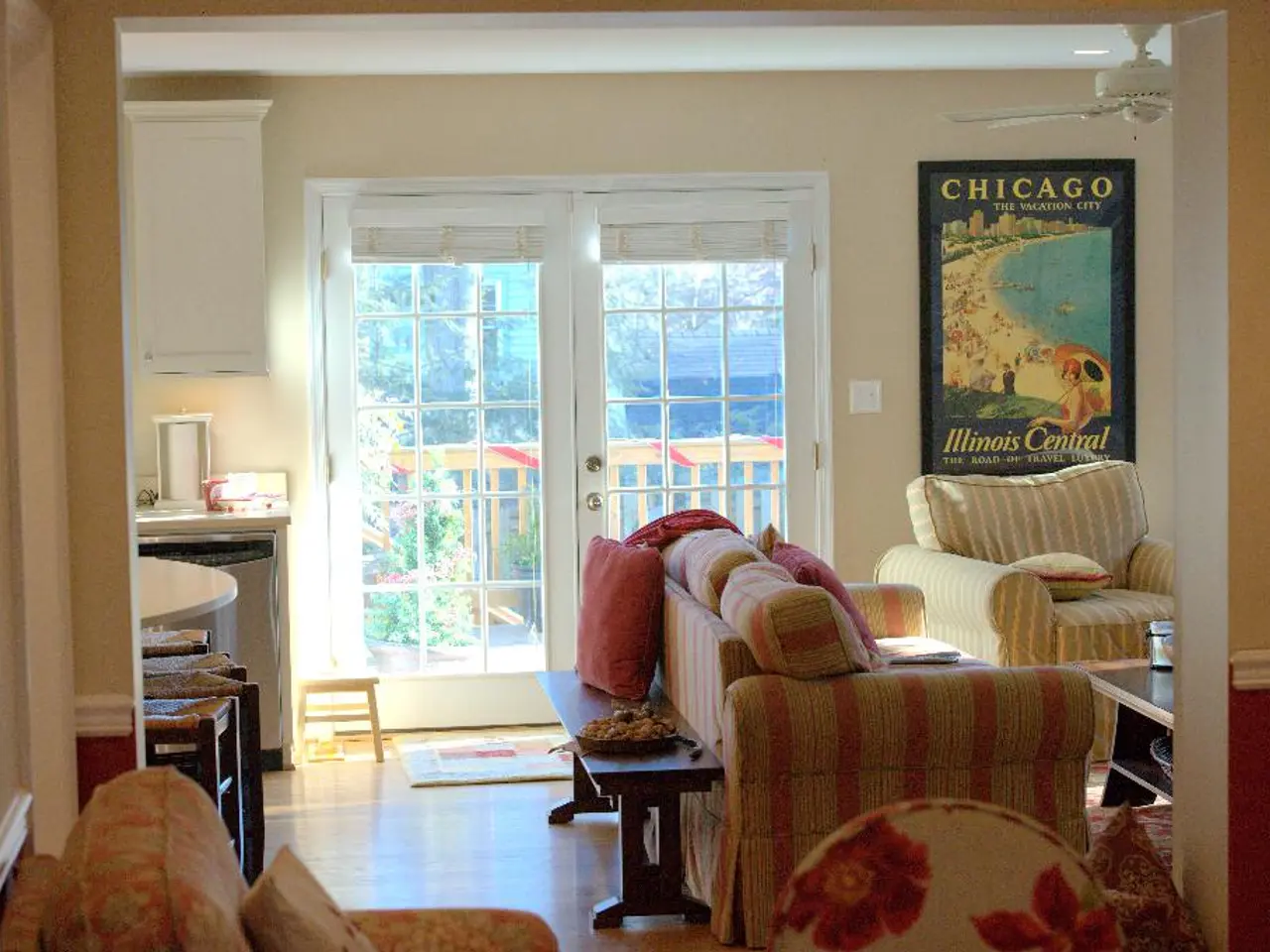Summer heat reliever: Instructions for planting and nurturing four saplings at KGS Bensberg
In the heart of Bergisch Gladbach, four young trees have been planted on the schoolyard of KGS Bensberg, marking a significant step towards a climate-adapted urban life. A landscape gardening company was commissioned to plant a cherry tree, a cedar, and two linden trees, chosen for their heat-tolerant properties.
The city, which initiated the "Map of Cool Places" in 2023 and currently has a Heat Action Plan, is focusing on mitigating the urban heat island effect. These heat-tolerant trees offer substantial benefits, including shading, evapotranspirative cooling, and improved air quality, all of which reduce local temperatures and mitigate heat-related health risks.
The benefits of these trees are multifold. They function as natural air conditioners, shading surfaces to reduce heat absorption and releasing water vapor, which cools the air around them. This cooling effect can reduce surface and air temperatures, easing the urban heat island effect. Furthermore, the tree canopy contributes to filtering air pollutants, enhancing overall urban environmental health.
However, challenges lie in balancing water needs, species-specific heat and drought tolerance, and adaptation to local urban conditions. For instance, while cherry trees can provide effective cooling, they may require more water compared to drought-tolerant species. The landscape gardening company will handle irrigation, particularly during the current heatwave, using irrigation bags to ensure adequate water supply for the school trees.
The city must also consider species-specific adaptation, urban space and soil constraints, and maintenance requirements. Not all tree species perform equally in high-heat urban environments, and limited planting space, compacted or poor-quality soil, and urban pollution can inhibit tree growth and health.
The young trees will develop a shade-providing crown over the next few years, providing an alternative learning space outdoors or for observing plant growth and seasonal changes. The tree felling, a necessary measure due to damage to a school building, required a felling permit that mandated replacement plantings after the measure was completed.
The city of Bergisch Gladbach, with its proactive approach towards combating climate change and creating a climate-adapted urban life, is setting an example for other cities to follow. Strategic planting that considers water availability, species heat and drought adaptations, and urban site conditions will help Bergisch Gladbach improve urban resilience against rising temperatures.
[1] Nature Sustainability [2] Urban Forestry & Urban Greening [3] Journal of Arboriculture [4] Environmental Pollution [5] International Journal of Biometeorology
- Incorporating environmental-science principles, the landscape gardening company selected heat-tolerant tree species like the cherry tree, cedar, and linden for the schoolyard in Bergisch Gladbach, aiming to enhance climate-change mitigation efforts.
- The multifunctional role of these trees extends beyond cooling and air quality improvements, as they also serve as valuable teaching tools for students, offering insight into the science of climate-change adaptation and home-and-garden practices.
- Future research in urban forestry, biometeorology, and arboriculture can derive valuable insights from the climate-adapted tree planting initiative in Bergisch Gladbach, potentially leading to more effective urban heat island strategies and guidelines for environmental-science action plans.




